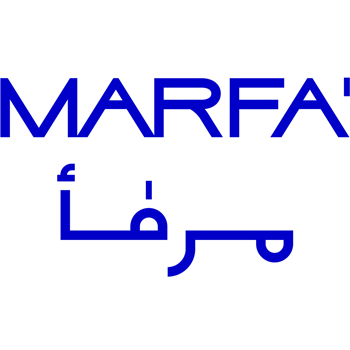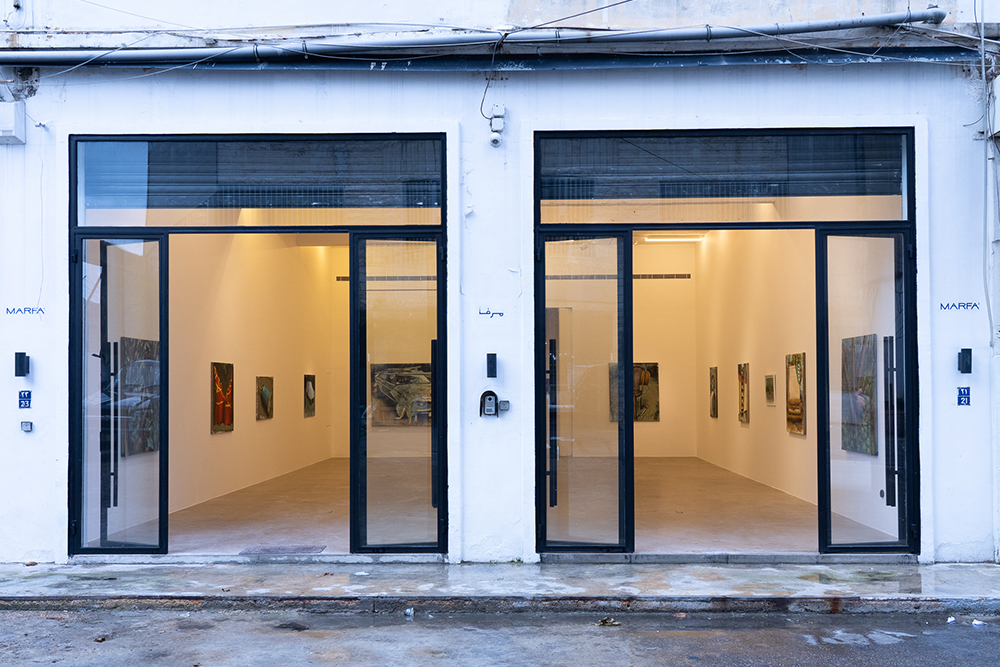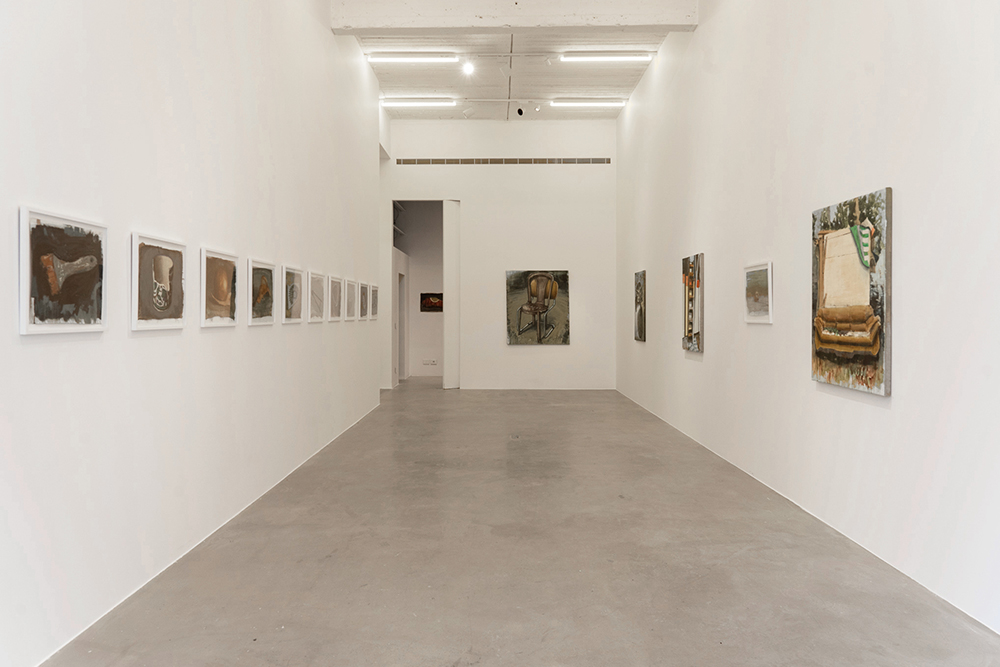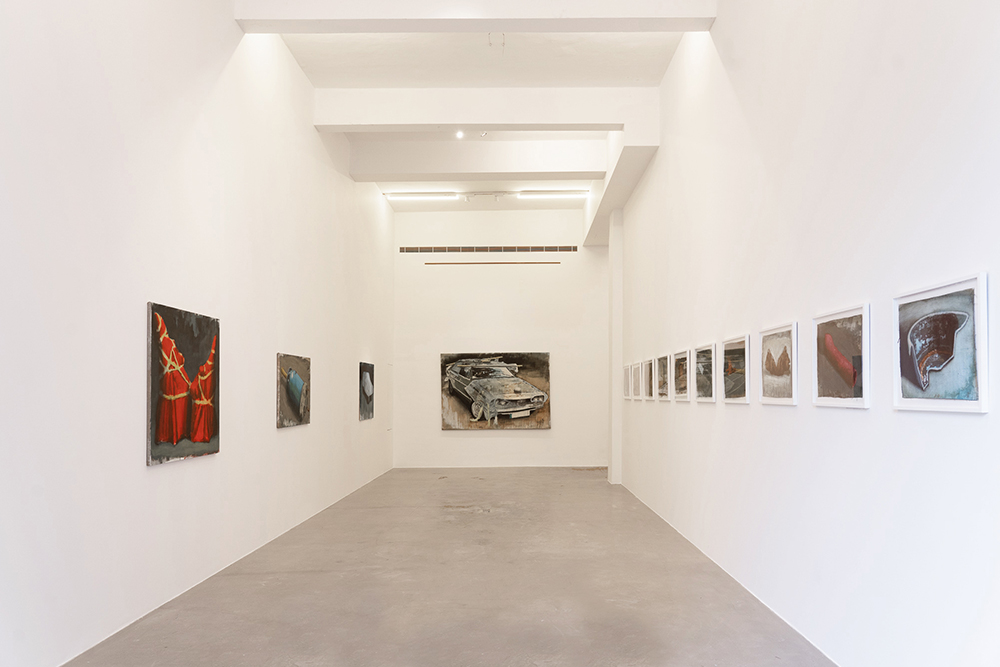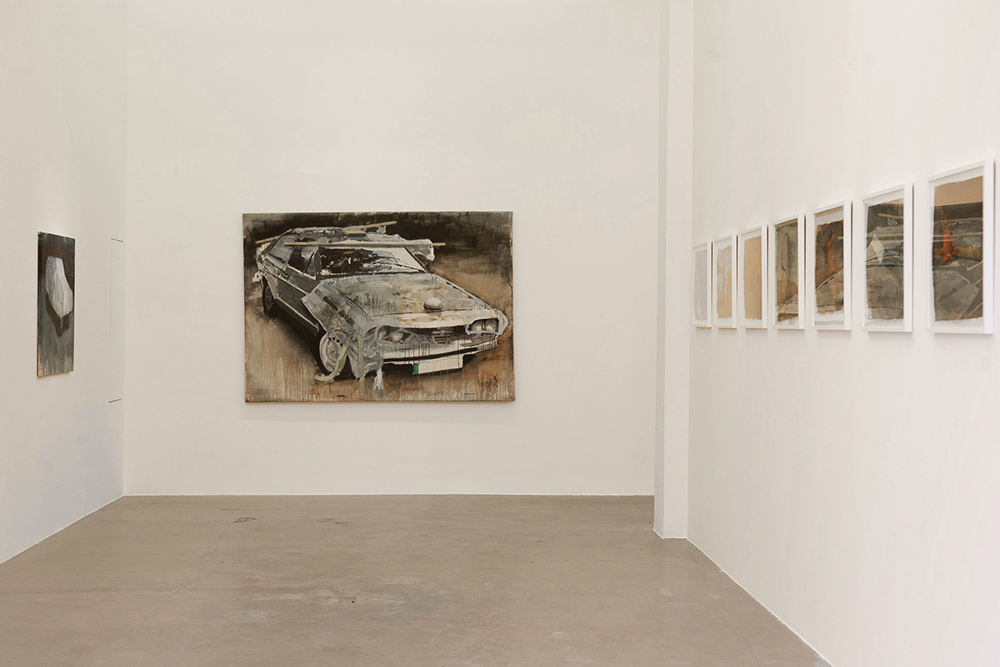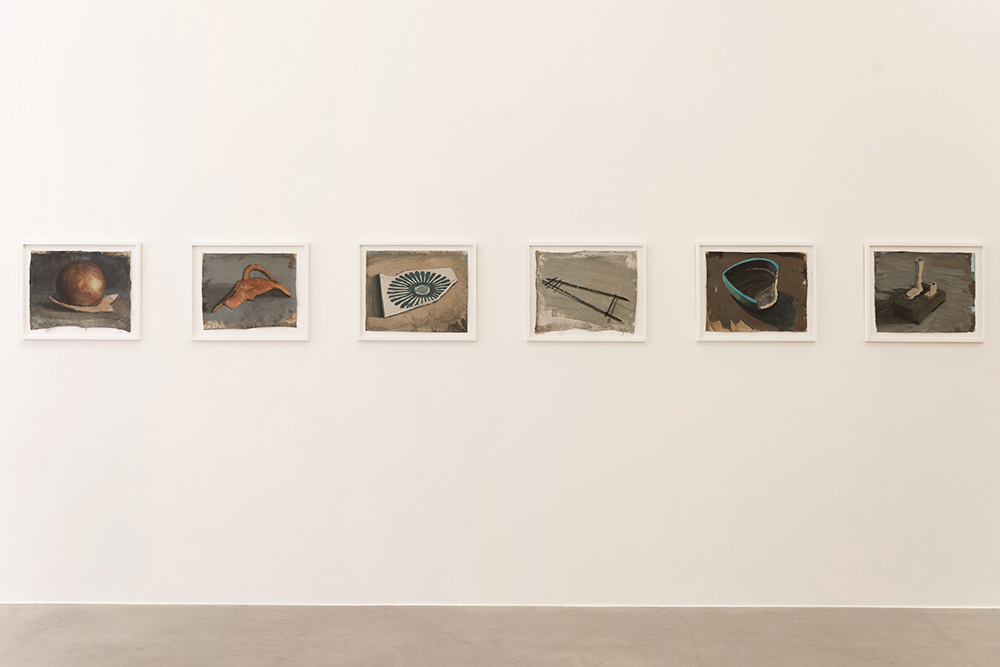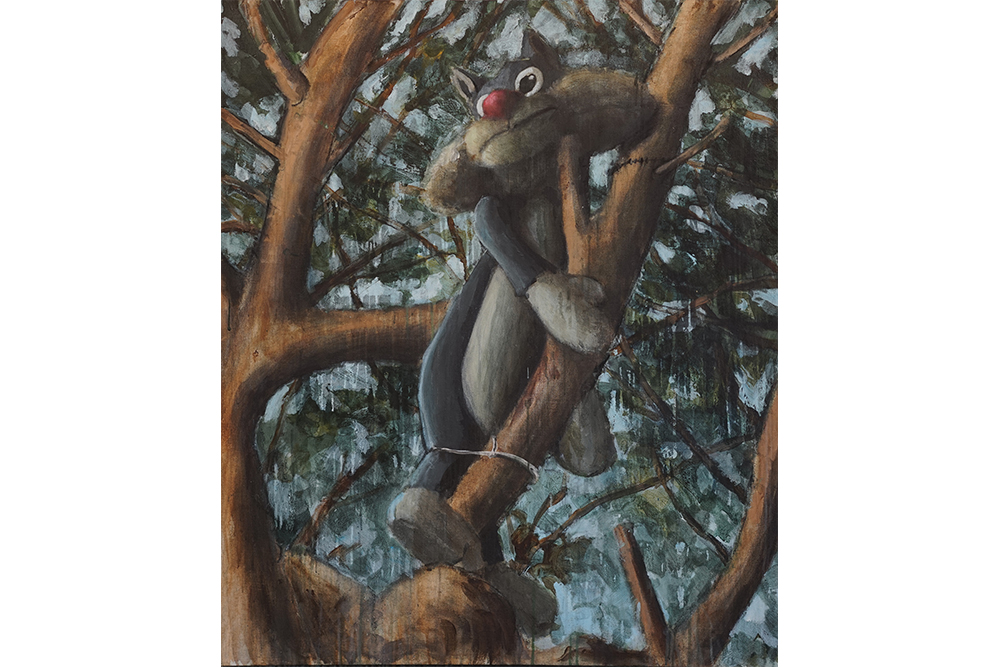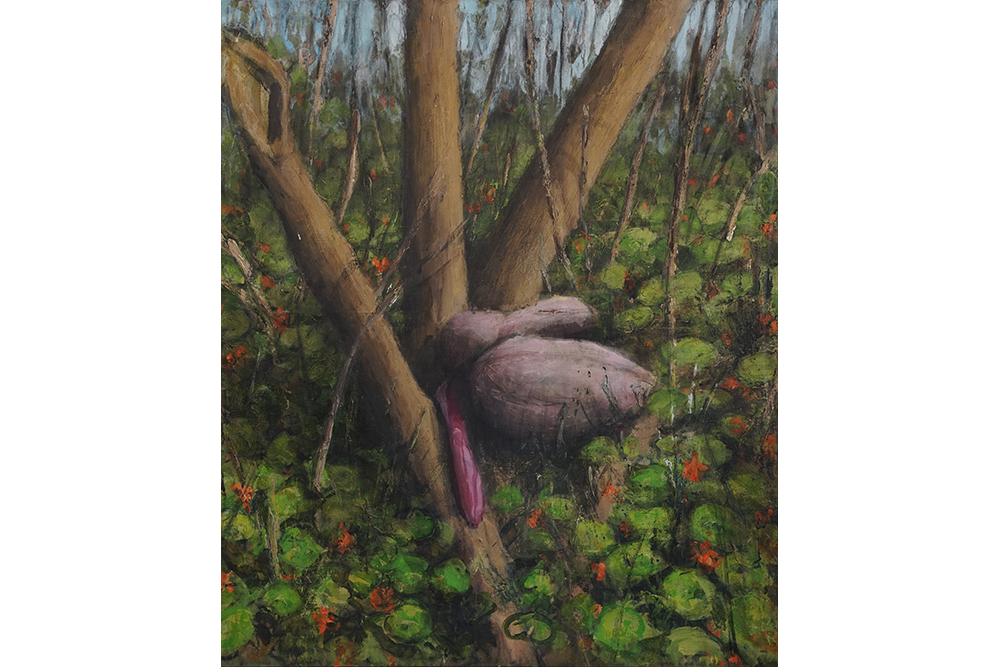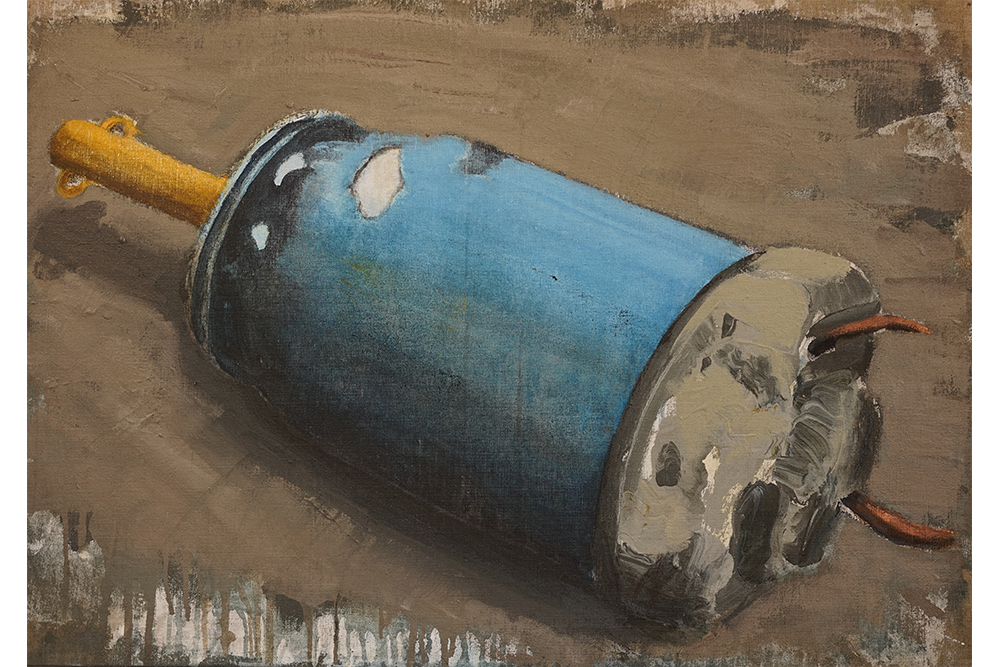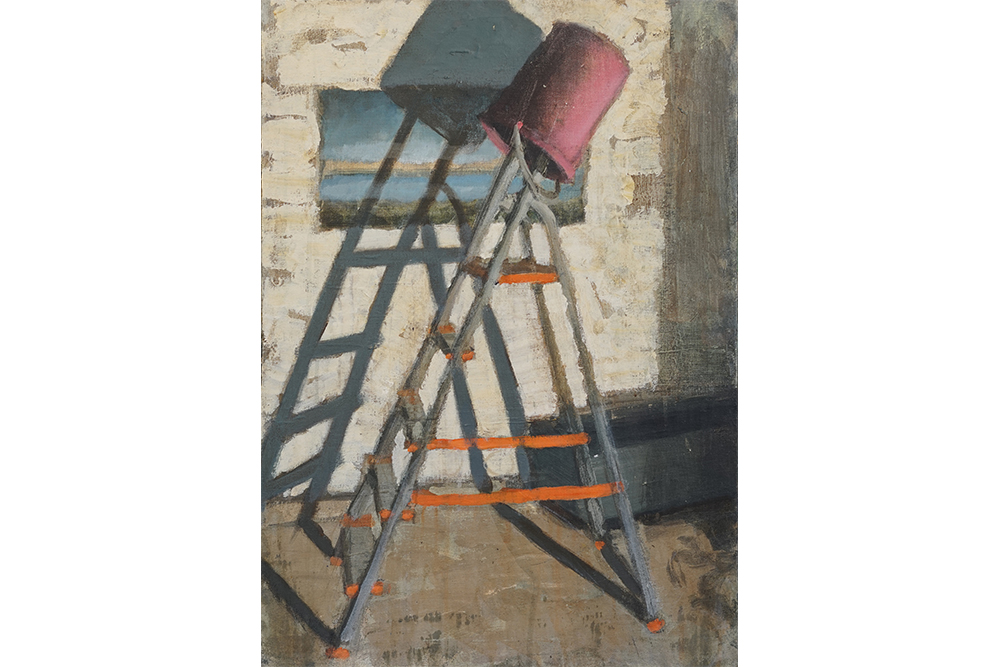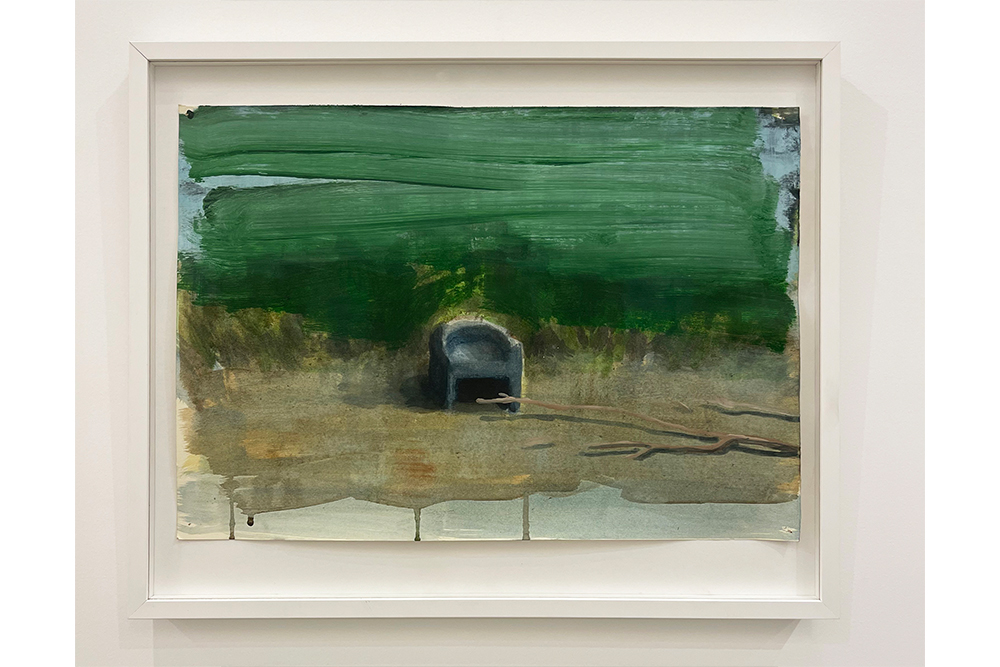Omar Fakhoury
Things and Other Things | أشياء وأشياء أخرى
10 February 2022 - 29 April 2022
Omar Fakhoury’s most recent series of paintings, Things and Other Things result from encounters in the exercise of living. They belong to the realm of affect and world-building, extending the artist’s impulse to shift power dynamics between the big and the small, the grand and the trivial through the act of painting. Fakhoury had in earlier works dissected the Holiday Inn through various scales, angles and perspectives and worked on the demystification of public monuments (in Rehearsals for a Setting) by reducing these celebrated objects to pedestals, forms, material and surfaces. The works in this exhibition protract this exercise of agency relating to the value of things.
I moved houses and studios a year ago. In the boxes I found a lot of objects broken either before or while moving. I started painting them one after the other. Some other objects were broken while I was painting the other ones so I painted them too, he says.
A broken record, a pair of sunglasses in two pieces, half an ashtray, a wrecked dildo, a smashed brush, constitute the series Fragments. Carrying life by withholding memories of people and moments, this series belongs to the intimate, the biographical: an object broken by his daughter, a relic from his father or a remnant of a past time. These everything but dead-object paintings – can one say living-object in opposition to this? – are the manifestation of affect in what they represent and in the act of painting them itself. They are like forensic photography-type images of an act of living in progress.
Some things belong to the confines of the home or the studio, others to the street, to life outside, outdoors, where a wider number of relations manifest between people and signs, urban nature and plastic or trash species. These intuitive ready-mades; improvised urban furniture and outlandish creatures built by men, by accident or by nature become subjects of Fakhoury’s painterly inquiry.
Fakhoury’s consideration of the city as a stage, a theatre for the surreal and poetic to perform is a notion he has also explored with his site-specific public intervention practice. In his most recent public intervention Terrace and with Christian Zahr as an accomplice, he turned a vertical advertising billboard into a simple stage or rooftop allowing for interactions and intuitive non-normative actions and manifestations to arise.
There is agency including political power that lies at the periphery of what is commonly valued as such. By working on the ordinary, the mundane and restituting the power of subjectivity and affect, Omar Fakhoury’s exhibition transpires desire, thus life.
Plastic Chair Groove is the title of those chair-ballerinas, often standing on one leg, which he has been recurrently fascinated with. These monuments of the everyday with an ever-changing usership value have become allies of human manoeuvres for survival on and off the sidewalks of our broken city. Eerie, cheeky, surreal, funny and all of them at once, these things and other things are a landscape of affect in a time when values, including our relationship to things, are shaken, questioned and celebrated as never before.
We are moved by things. And in being moved, we make things. An object can be affective by virtue of its own location (the object might be here, which is where I experience this or that affect) and the timing of its appearance (the object might be now, which is when I experience this or that affect). To experience an object as being affective or sensational is to be directed not only toward an object, but to ‘’whatever’’ is around that object, which includes what is behind the object, the conditions of its arrival. Sarah Ahmed, Happy Objects (2010)
Amanda Abi Khalil, February 8, 2022
